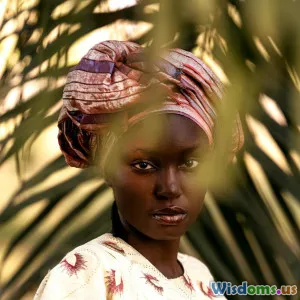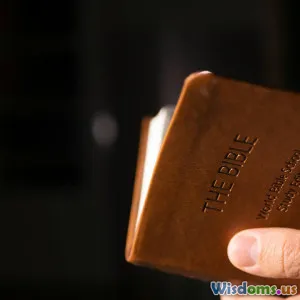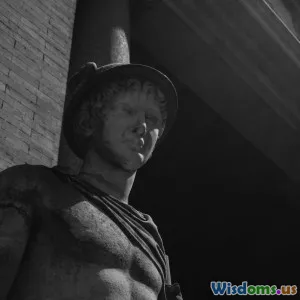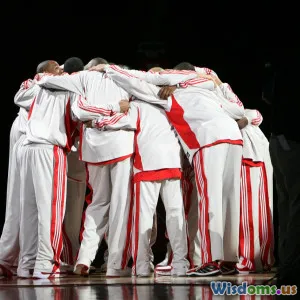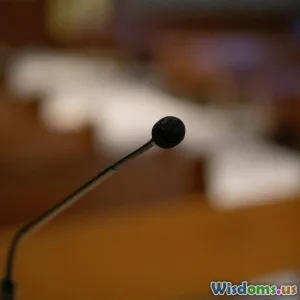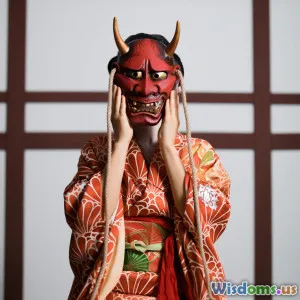
Transformative Power of Myths
8 min read Explore how myths shape societies, ignite personal growth, and reveal timeless truths. (0 Reviews)
The Transformative Power of Myths
Introduction
Myths have been an integral fabric of human civilization, transcending time, geography, and culture. Often dismissed as mere old tales, myths are in fact powerful narratives that shape realities, influence societies, and transform individuals. From the dread and wonder of Greek gods to the profound lessons embedded in African folktales, myths have continuously served as vessels of meaning. Why do these stories endure? What makes them so impactful across millennia?
This article explores the transformative power of myths — how they shape cultural identity, stimulate psychological insight, and ignite personal growth. We will journey through historical contexts, delve into psychological frameworks, and uncover the living relevance of myths in today's world.
The Foundation of Human Culture
Myths as Cultural Cornerstones
Every civilization has created myths to explain the unknown and establish norms. These stories bind communities by encoding shared values and collective memory. For example, the Norse myths emphasized bravery and honor, traits vital to Viking culture, while the Navajo origin stories connected the people emotionally and spiritually to their environment.
A case in point is the Ancient Egyptian myth of Osiris, highlighting themes of death, rebirth, and justice. This story permeated religion, governance, and art, guiding moral standards and the afterlife beliefs that were central to Egyptian culture for thousands of years.
Evidence of Societal Transformation
Anthropological research shows myths often acted as blueprints for social behavior and law. The Code of Hammurabi has mythic underpinnings, a divine mandate ensuring justice through the story of gods bestowing legal authority onto King Hammurabi. This melding of myth and law fostered social cohesion and order.
Furthermore, mythic themes like the hero’s journey provide a universal scaffold for storytelling, sustaining cultural frameworks and imparting lessons that help societies adapt.
Psychological Dimensions of Myths
Carl Jung and Archetypes
The Swiss psychiatrist Carl Jung revolutionized our understanding of myths by identifying archetypes — fundamental images and themes embedded in the collective unconscious. Jungian analysis suggests myths are not mere stories but symbolic maps guiding us through universal human experiences such as birth, death, and transformation.
The archetype of the “Hero,” seen in myths as diverse as King Arthur in Britain and Hercules in Greece, represents an individual’s psychological quest for identity and purpose. Joseph Campbell eloquently articulated this in his work "The Hero with a Thousand Faces," where he outlined the monomyth structure prevalent across cultures.
Myths as Tools for Healing and Growth
In clinical settings, myths often serve therapeutic functions. Narrative therapy incorporates mythic elements to enable patients to reframe personal struggles. For example, individuals may relate to the story of the phoenix rising from ashes to find resilience after trauma.
Research in positive psychology highlights that engagement with mythic stories fosters meaning-making and aids in coping with existential challenges. By connecting with mythic themes, people align their personal narratives with timeless truths.
Myths in Modern Life and Culture
Literary and Artistic Impact
Modern writers and artists continue to draw profoundly from mythic materials to explore contemporary issues. James Joyce’s "Ulysses" reinterprets Homer’s "Odyssey" to investigate identity and modern urban life. Similarly, contemporary cinema — think of "Star Wars" — explicitly uses mythic structure to tell stories of hope and redemption.
These adaptations affirm myths remain adaptive, evolving forms that provide frameworks for understanding the complexities of modern existence.
Myths and Social Movements
In politics and activism, myths can inspire change. The "American Dream" manifests mythic ideals of opportunity and transformation. Stories of national founding parents are often mythologized to evoke values of freedom and justice.
On a grassroots level, activists might invoke archetypes such as the “Rebel” or the “Visionary” to galvanize communities. These patterns resonate deeply, motivating collective action and social transformation.
Digital Age and the Revival of Mythic Narratives
Today, myths find new life through digital storytelling, gaming, and virtual reality. Platforms like podcasts and graphic novels reimagine ancient myths for new audiences, ensuring their continued influence. This democratization of myth access fosters global cultural exchange and innovation.
Conclusion: Embracing the Transformative Legacy of Myths
Myths are far from relics of a bygone era. They are dynamic, living forces that continue to transform societies and individuals alike. By revealing fundamental truths about existence, human nature, and morality, myths guide us toward self-understanding and cultural cohesion.
Embracing the transformative power of myths allows us to reconnect with a collective wisdom, inspiring us to face life’s challenges with courage and creativity. As the poet William Butler Yeats once noted:
“Nobody, but Nobody, knows what the future is and in the end, it all becomes myth.”
By understanding and engaging with myths consciously, we can shape personal and societal narratives that are not only meaningful but also transformative, leading to a more connected and enlightened humanity.
References
- Campbell, Joseph. The Hero with a Thousand Faces. Princeton University Press, 1949.
- Jung, Carl Gustav. The Archetypes and The Collective Unconscious. Princeton University Press, 1980.
- Eliade, Mircea. The Myth of the Eternal Return. Princeton University Press, 1971.
- Segal, Robert A. Myth: A Very Short Introduction. Oxford University Press, 2004.
- Positive Psychology research on narrative and resilience (e.g., Tedeschi & Calhoun, 2004).
Further Reading
- "Star Wars and Mythic Storytelling: A Cultural Analysis" - Journal of Popular Culture.
- "Myth in Anthropology: Foundations and Applications" – American Anthropologist.
- "Digital Mythmaking: Technology and Contemporary Folklore" – Journal of Digital Culture.
Rate the Post
User Reviews
Popular Posts












